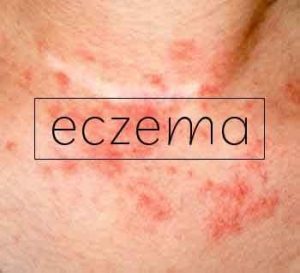- Home
- Editorial
- News
- Practice Guidelines
- Anesthesiology Guidelines
- Cancer Guidelines
- Cardiac Sciences Guidelines
- Critical Care Guidelines
- Dentistry Guidelines
- Dermatology Guidelines
- Diabetes and Endo Guidelines
- Diagnostics Guidelines
- ENT Guidelines
- Featured Practice Guidelines
- Gastroenterology Guidelines
- Geriatrics Guidelines
- Medicine Guidelines
- Nephrology Guidelines
- Neurosciences Guidelines
- Obs and Gynae Guidelines
- Ophthalmology Guidelines
- Orthopaedics Guidelines
- Paediatrics Guidelines
- Psychiatry Guidelines
- Pulmonology Guidelines
- Radiology Guidelines
- Surgery Guidelines
- Urology Guidelines
Eczema Patients afraid of using steroid ointments: JAMA

Patients exhibit fear of using topical steroids when required and prescribed by their attending doctors after receiving misinformation about topical corticosteroids from a variety of sources, including health care workers, friends and relatives, print media, and the internet and this is termed as topical corticosteroid phobia.
Topical corticosteroid phobia is a widespread and cross-cultural phenomenon; recognition may identify potential targets for intervention and opportunities to increase treatment adherence.Topical corticosteroid (TCS) phobia refers to the negative feelings and beliefs related to TCSs experienced by patients and patients’ caregivers. This phenomenon may be a major contributing factor in treatment failure in patients with atopic dermatitis, yet it has been sparsely described in the literature.
This review was done by to systematically assess the nomenclature, prevalence, origins, and effect on treatment adherence of TCS phobia in atopic dermatitis. A literature search was conducted using specific eligibility criteria across electronic databases, including Ovid (MEDLINE, EMBASE), PubMed, and Web of Science, for articles published from January 1, 1946, to October 31, 2016. Included articles must have assessed TCS phobia in patients with atopic dermatitis or their caregivers. Quality ratings of studies were based on a modified version of the Oxford Centre for Evidence-Based Medicine quality rating scheme for individual studies.
It was found that of the 490 articles identified by literature search, 16 met the eligibility criteria. All studies were cross-sectional. Topical corticosteroid phobia prevalence ranged from 21.0% (95% CI, 15.8%-26.2%) to 83.7% (95% CI, 81.9%-85.5%). There was significant variation in how phobia was defined, ranging from concern to irrational fear. Questionnaires used to assess for TCS phobia included 1 to 69 questions. In the 2 studies that compared nonadherence between a phobia group and a nonphobia group, patients in both phobia groups were found to have a significantly higher rate of nonadherence (49.4% vs 14.1% and 29.3% vs 9.8%). The sources from which patients were receiving information about corticosteroids included physicians, friends and relatives, broadcast media, print media, and the internet.
It was concluded that features of TCS phobia are commonly reported by patients across cultures and may be associated with a higher rate of nonadherence. Patients with TCS phobia and the sources from which patients are receiving information about corticosteroids may be targetable for intervention to increase adherence to treatment regimens. The nomenclature and assessment methods for TCS phobia used in studies, however, lack standardization, precluding quantitative comparison and extrapolation of data. Additional research, using standardized definitions and methods of assessment, is needed to better characterize this phenomenon and evaluate the efficacy of potential interventions.
For more details click on the link : http://jamanetwork.com/journals/jamadermatology/article-abstract/2643740

Disclaimer: This site is primarily intended for healthcare professionals. Any content/information on this website does not replace the advice of medical and/or health professionals and should not be construed as medical/diagnostic advice/endorsement or prescription. Use of this site is subject to our terms of use, privacy policy, advertisement policy. © 2020 Minerva Medical Treatment Pvt Ltd